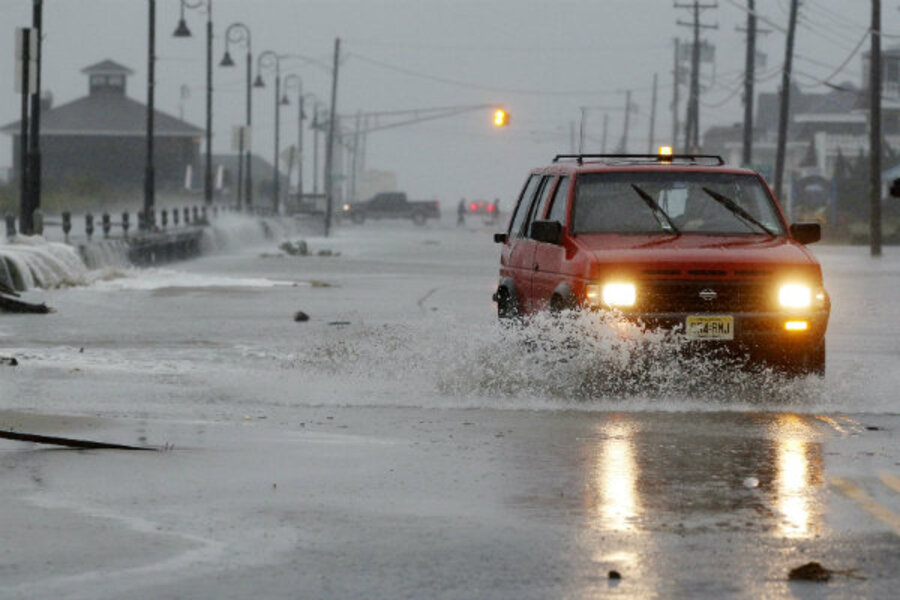The economic impact of hurricane Sandy
Loading...
| College Park, Md.
Hurricane Sandy is predicted to severely impact people's lives and property. However, gauging its ultimate impact on an economy – still struggling to overcome the Great Recession but with substantial resources to overcome adversity – is far more complex than merely adding up insurance payouts and uninsured losses.
Disasters can give the ailing construction sector a boost, and unleash smart reinvestment that actually improves stricken areas and the lives of those who survive intact. Ultimately, Americans, as they always seem to do, will emerge stronger in the wake of disaster and rebuild better – making a brighter future in the face of tragedy.
Sandy is an unusual storm and complex to gauge. Coming late in the season and combining with cold fronts to the west and north, it is really a post-tropical cyclone and has the potential to deliver epic destruction. However, coming so soon after Irene in August 2011, the level of anticipation and preparedness demonstrated by federal and state officials is commendable and should mitigate some losses – especially loss of life.
Early estimates of the direct damage caused by hurricane Irene were around $7 billion but ultimately it inflicted $15 billion to $20 billion in damage.
It seems likely that Sandy will impose greater destruction of property. Add to that the loss of about two days commercial activity, spread over a week across 25 percent of the economy, and an initial estimate of the economic losses imposed by Sandy is about $35 billion to $45 billion.
However, rebuilding after Sandy, especially in an economy with high unemployment and underused resources in the construction industry, will unleash at least $15 billion to $20 billion in new direct private spending – likely more as many folks rebuild larger than before, and the capital stock that emerges will prove more economically useful and productive.
Regarding the latter, consider a restaurant with inadequate patronage – its owner invests the insurance settlement in a new more attractive business. On the shore, older, smaller homes on large plots are replaced by larger dwellings that can accommodate more families during the summer tourist season. The outer banks of North Carolina saw such gains several decades ago after rebuilding from a storm of similar scale.
All of this is not to discount the direct costs to individuals by temporary, and in some cases permanent, disruption to lives and communities, much of which cannot be quantified. However, when government authorities facilitate rebuilding quickly and effectively, the process of economic renewal, in many tangible ways, can leave communities better off than before.
Factoring in the multiplier effect of $15 billion to $20 billion spent rebuilding yields an economic benefit from reconstruction of about $27 billion to $36 billion. Add to that the gains from a more modern and productive capital stock – likely in the range of $10 billion – and spending by consumers and businesses that is only delayed but not permanently lost – likely in the range of $12 billion – and the total effects of natural disasters of the scale of Sandy are not as devastating two years down the road.
Peter Morici is an economist and professor at the Smith School of Business at the University of Maryland School. He is a widely published columnist.







